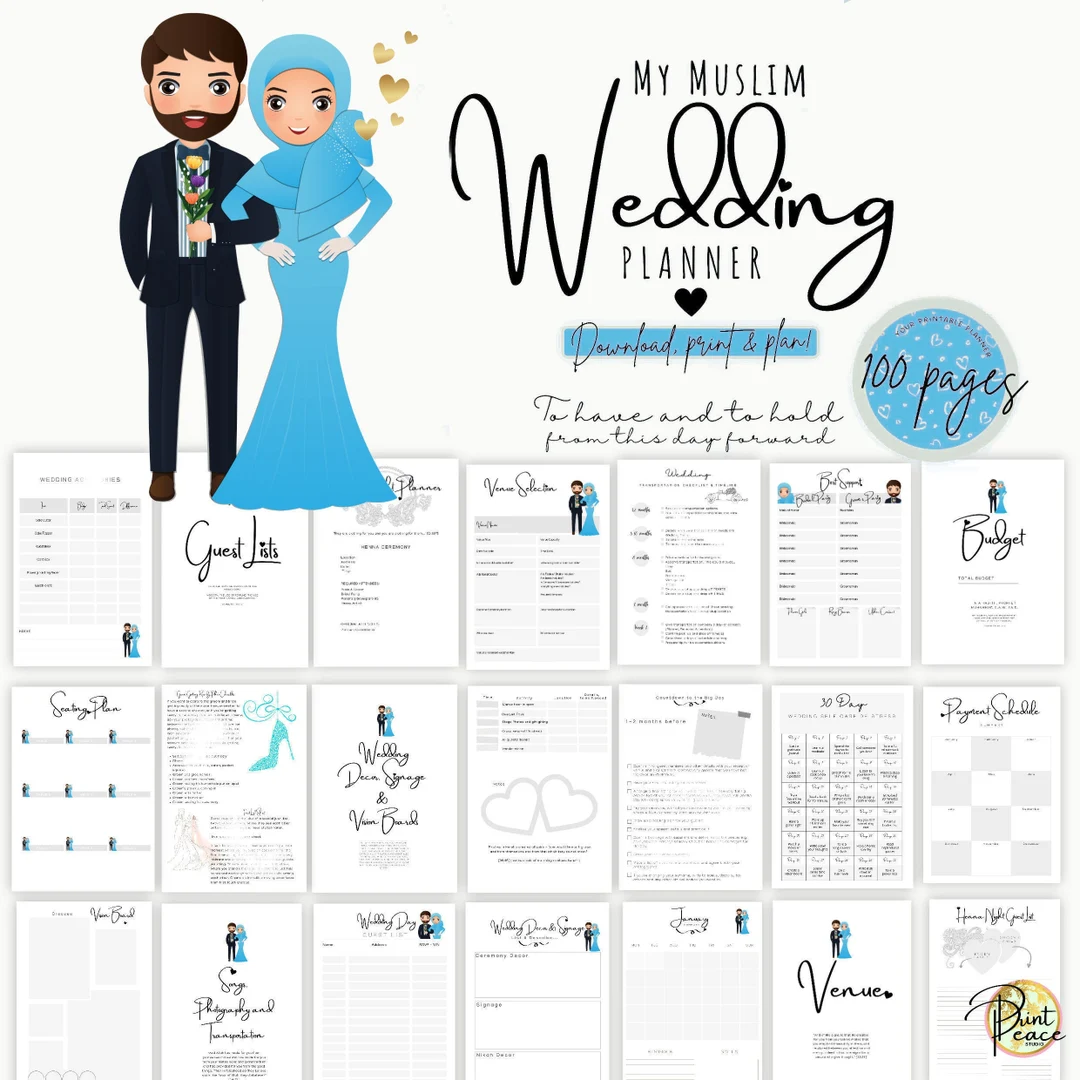
Planning a Blessed and Beautiful Islamic Wedding
Planning an Islamic wedding involves adhering to religious guidelines while celebrating the union in a joyful and meaningful way. Here are essential steps and tips to guide you through the process.
Pre-Wedding
- Nikah: Fix a date for the Nikah ceremony, ensuring it’s not during Ramadan or Eid days.
- Marriage Contract: Prepare the marriage contract, including the Mehr (dowry) and other terms.
- Wali: Appoint a Wali (guardian) for the bride, if needed.
- Wedding Party: Decide on the wedding party size and guest list.
Wedding Day
- Nikah Ceremony: Conduct the Nikah ceremony, led by an Imam or authorized person.
- Khutbah: Deliver a Khutbah (sermon) emphasizing the importance of marriage.
- Ijab-e-Qubul: Perform the Ijab-e-Qubul (proposal and acceptance).
- Signing the Contract: Sign the marriage contract in the presence of witnesses.
- Walima: Host a Walima (reception) to celebrate the union.
Wedding Reception
- Halal Food: Serve Halal food and drinks.
- Segregation: Ensure segregation between men and women, if desired.
- Islamic Entertainment: Opt for Islamic entertainment, such as Nasheeds or Quran recitation.
- Gifts: Exchange gifts, keeping in mind Islamic guidelines.
Post-Wedding
- Honeymoon: Plan a Halal honeymoon, considering Islamic travel guidelines.
- Marriage Counseling: Seek marriage counseling from Islamic scholars or professionals.
Additional Tips
- Keep it Simple: Avoid excessive spending and focus on simplicity.
- Involve Family: Involve family members in the wedding planning process.
- Seek Guidance: Consult Islamic scholars or professionals for guidance.
- Prioritize Deen: Prioritize your Deen (faith) and ensure the wedding aligns with Islamic values.
Remember, an Islamic wedding is a beautiful occasion to strengthen your bond with Allah and your partner. May Allah bless your union!





